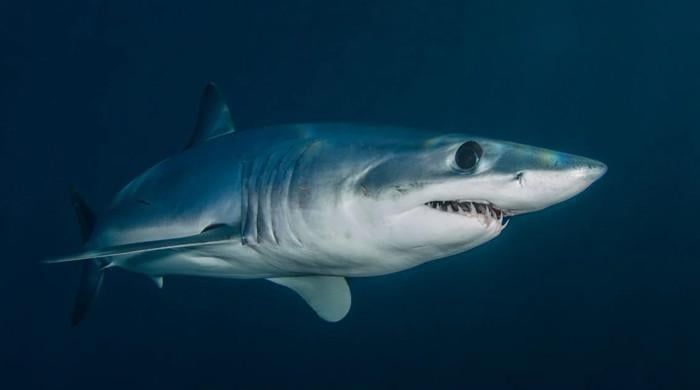A new study has revealed new information about shark behavior and claims how volcanic eruptions influence the ferocity of marine predators.
According to the study published in the journal Current Biology, sharks evolved about 93 million years ago when lava entered the ocean, Newsweek reported.
This phenomenon increased the temperature of the ocean more than ever.
Experts now maintain, after studying more than 500 fossilized sharks, that the species evolved its pectoral fins.
The study's first author, Phillip Sternes, said in a statement: “The pectoral fins are a critical structure, comparable to our arms. What we saw when reviewing a massive data set, was that these fins changed shape as the Sharks expanded their habitat from the bottom to the open sea.
“Its fins are comparable to the wings of commercial airplanes, long and narrow, to minimize the amount of energy needed for movement.”
Most modern sharks still live in the benthic zone, the bottom of the ocean, and are flatter, medium-sized predators, unlike the “fierce, fast-swimming, open-water sharks.”
Scientists argued that ancient species had difficulty breathing due to low oxygen levels at the bottom of the ocean, which led sharks to come out into open waters in the Cretaceous period.
At that time, sea surface temperatures were warmer than today.
“We had fairly warm open ocean surface temperatures throughout the era, and then a distinct peak that took place over a period of one to two million years,” said paper co-author Lars Schmitz.
“The temperature is rising so rapidly now that there is nothing in the geological record that I know of that we can use for a true comparison,” Sternes said.
Scientists are currently baffled about how to predict how marine life would adapt to changes in water temperature.












